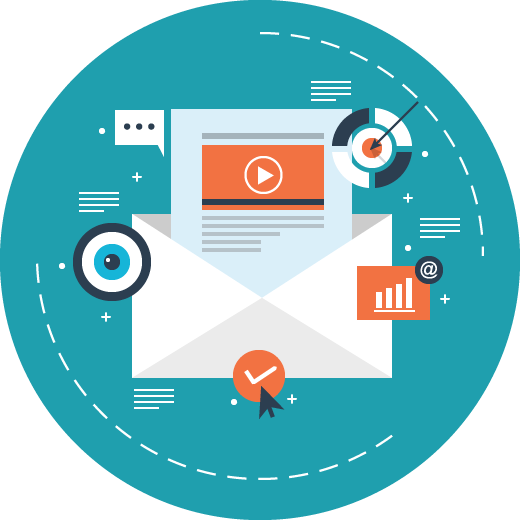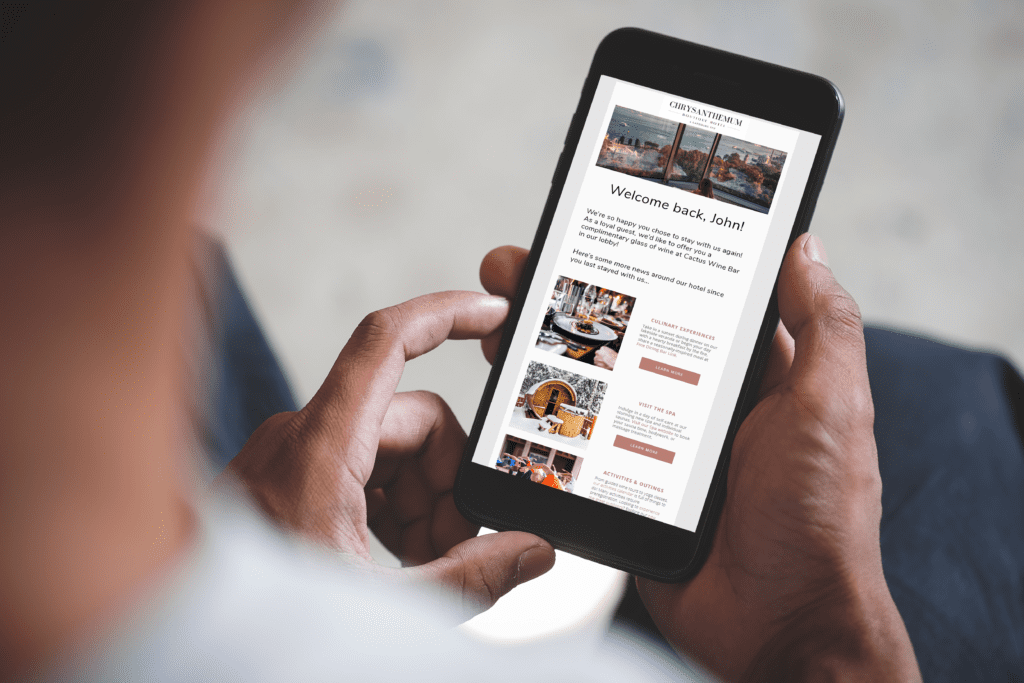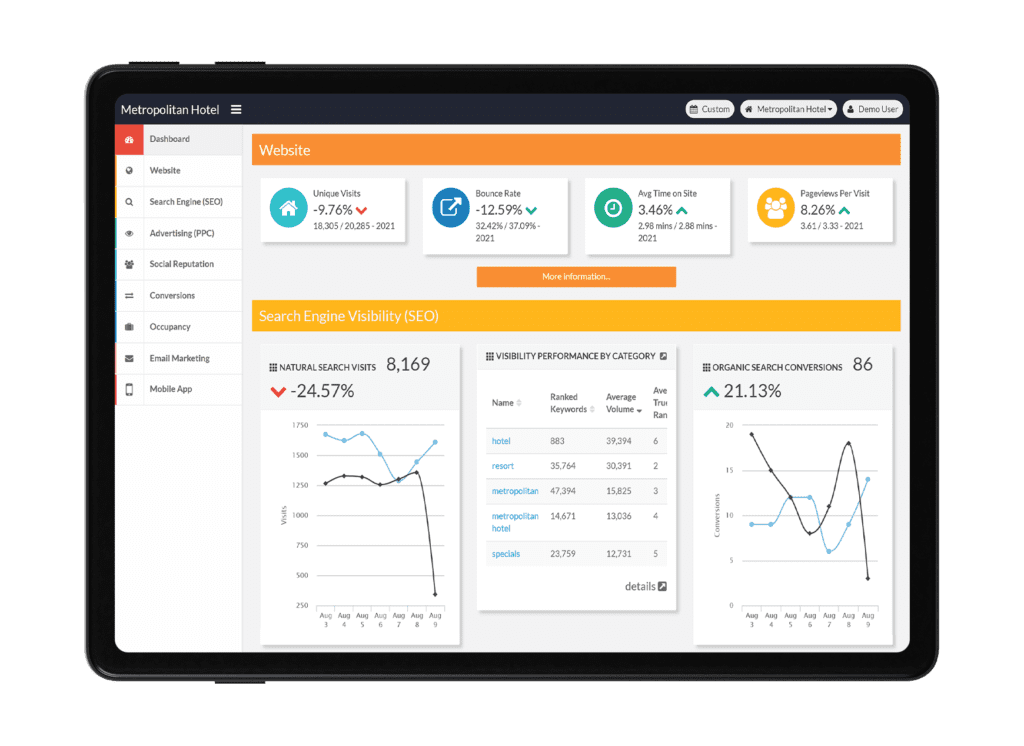Optimizing Revenue per Available Room (RevPAR) is one of the key focuses of most hoteliers. Travel is up, but so are guest expectations. Navigating the complex world of revenue management requires innovative solutions. While dedicated revenue management software is a component of this process, all of your technology must work together to increase your bottom line.
In addition, many hoteliers are broadening their scope beyond just RevPAR. Room rates should just be one slice of the overall revenue pie. Look at strategies to optimize guest spending via add-ons, services, and amenities.
What is Hotel RevPAR?
RevPAR is a cornerstone metric in the hotel industry. This KPI is a calculus of the total revenue generated per available room over a specific period. It is a key indicator of a hotel’s performance as it measures both occupancy rates as well as average daily room rates. For hoteliers, maximizing RevPAR is essential for driving revenue growth and maintaining competitiveness in the market.
RevPAR = Average Daily Rate (ADR) x Occupancy Rate (%). Your average daily rate tells you the overall price you’re selling rooms at, while the occupancy rate measures how many of those rooms were full. Your ADR might be high but so should your occupancy – and vice versa.
How to Increase Monthly RevPAR in Hotels:
To enhance monthly RevPAR, hoteliers must adopt strategic approaches that leverage market insights, guest preferences, and current trends. Here are 10 effective strategies based on real-world hotel feedback.
1. Focus on Direct Bookings:
Direct bookings are the “cheapest” room bookings, coming in without any commission or fees. Getting more of them is easier said than done. Encourage guests to book directly through your website by offering exclusive perks and personalized experiences.
Implement an easy-to-navigate online hotel booking engine that’s designed to increase conversion and promote cross-selling. One strategy for direct reservations in your booking engine is to include urgency messaging – such as the number of reservations made recently or time-based special offers.
2. Evaluate Your Digital Marketing:
Your hotel’s digital marketing efforts should be strategic and specific. Take a look at everywhere a guest could potentially find you, and consider if you’re representing yourself as best you can on that channel. Are there channels you’re missing?

Digital marketing is your way to get new, loyal guests that book directly. Taking the time to thoroughly evaluate your current efforts is essential to increasing brand awareness and revenue. Some key areas for consideration:
- Is your social media presence active and relevant?
- Are you emailing past guests with timely, dynamic messages?
- Are your competitors showing up with paid advertisements above your organic results?
3. Enhance Online Reviews:
Monitor and manage online reviews across platforms to maintain a positive reputation and attract more guests. A strong reputation on key review channels will increase occupancy and, in turn, your RevPAR. For some key strategies on responding to, and more importantly, how to avoid bad reviews, read our recent article: How to Respond to A Negative Hotel Guest Review.
4. Implement Dynamic Pricing Strategies:
Utilize data-driven insights to adjust room rates dynamically based on demand fluctuations and market trends. Your property management system and hotel tech stack must be set up to make this possible. That means you’ll need the ability to quickly and efficiently change rates on the go, not just when you’re sitting at a desk. Your hotel booking engine and channel manager should be reliably integrated to immediate updates across direct and indirect channels.
Dynamic pricing strategies are based on real-time market data, rather than just a static weekly rate that you set and forget. It is essential to increasing RevPAR because it is a reaction to the ever-changing reality of a hotel. Keeping a high rate may decrease occupancy when demand is low, or when demand is high and you’re selling your rooms at too low a rate.
5. Optimize Revenue Channels:
Diversify revenue streams by exploring additional offerings such as ancillary services, packages, and experiences. This is an essential component of increasing revenue per available guest, rather than just per room. Some examples of services, packages, and experiences include:
- Pre-paid breakfast
- Parking
- Local tours and attractions
- Discounts at F&B, spa or other amenities
6. Leverage Loyalty Programs:
Incentivize repeat bookings and foster guest loyalty through tailored loyalty programs and rewards. There are many dedicated systems for managing and creating a specific loyalty program. Consider investing in specific technology for this purpose.

Or, leverage your past guest’s loyalty with a guest messaging solution for hotels that makes it easy for you to create and maintain email marketing campaigns. A drag-and-drop email editor and robust user segmentation features make it easy to create a beautiful, dynamic email and then send it to an engaged segment of past guests.
7. Enhance Guest Experience:
Invest in amenities, facilities, and services that enhance the overall guest experience and drive satisfaction. Outside (or, in addition to!) costly renovations and major service upgrades, consider creating a truly connected guest experience from pre-arrival to post-stay.
For example, a dedicated mobile app where guests can plan their trip. Or improve your pre-arrival emails by making them visually engaging and in line with the experience of being at your hotel. Contactless check-in is another way to enhance the guest experience at a relatively minimal long-term cost.
8. Streamline Operations with Technology:
Automate routine tasks and streamline operational processes with better technology. Your tech stack should be centered around reducing labor costs and making your staff’s jobs easier. Evaluate how easy-to-use, and just as importantly, easy-to-train, key technology is. You can significantly enhance operational efficiency with better operational and marketing tools.
9. Embrace Data Analytics:
Harness the power of data analytics to gain actionable insights into guest behavior, market trends, and competitor strategies. A robust cloud-based system will uncover valuable insights, inform strategic decisions, and drive continuous improvement in RevPAR performance.

When considering your marketing output and ROI, there are often too many interfaces to log in and keep track of. Social media channels, website analytics, communication tools, visibility, third-party sites, and so on. Put it all in one place with an analytics dashboard that shows you all of this data in one easy-to-navigate dashboard.
10. Stay Agile and Adapt:
Remain agile and adaptable in response to changing market dynamics, emerging trends, and guest preferences. The most important thing you can do to maintain strong RevPAR is to stay on top of trends both at the local level and across the hotel and technology landscape.
Frequently Asked Questions about Hotel RevPAR:
Still curious about improving your hotel RevPAR? Here are some answers to frequently asked questions.
How do I increase my RevPAR index?
RevPAR index is your place amongst competitors. To increase your RevPAR index, make changes that help you stand out from competitors with a higher revenue per available room.
How do you optimize RevPAR?
Leverage data-driven insights, adopting dynamic pricing strategies, enhancing guest satisfaction, and maximizing direct revenue channels.
What factors affect RevPAR?
Occupancy rates, average daily rates, local market demand, compset, and guest satisfaction levels significantly impact RevPAR performance.
How do you calculate RevPAR for the month?
Divide the total room revenue generated during the month by the total number of available rooms, providing an accurate measure of revenue per available room for the specified period.
Investing in technology that boosts RevPAR

Strategic revenue and marketing initiatives need innovative software solutions. Fuel Travel helps hoteliers unlock new revenue opportunities, enhance guest satisfaction, and drive sustainable RevPAR growth. This includes a mobile-first booking engine, guest messaging platform, mobile app, analytics tools, and more.
Learn more about Fuel Travel via a demo of our products. Contact us today.




